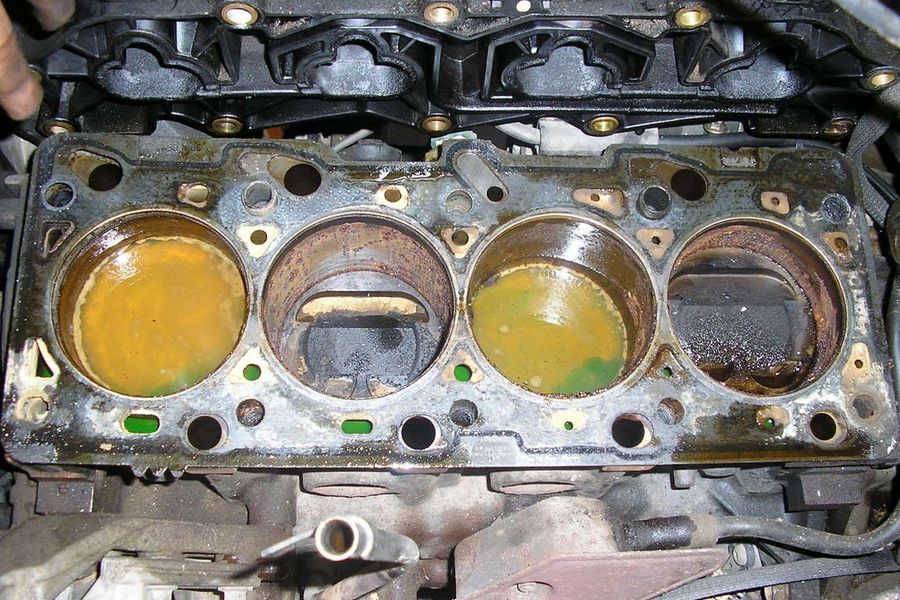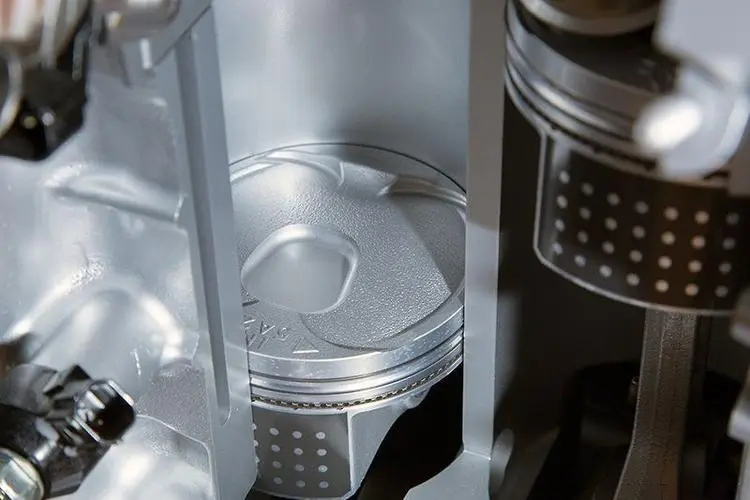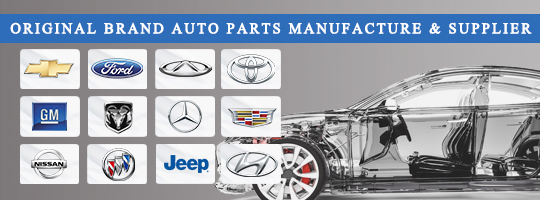The engine piston has water may be the vehicle in the water after the bubble led to engine water, may also be the vehicle in the water due to the engine water caused by flameout; It could also have been caused by a damaged cylinder liner entering the engine with coolant.
Engine water hazard: after vehicle wading, water from the intake manifold into the cylinder, due to the incompressibility of water, piston movement stroke will be shorter, resulting in bending or fracture of engine connecting rod, extreme conditions will cause fracture connecting rod flying through the cylinder.

The working environment of the piston is very bad. Under the action of high temperature and high pressure gas, it constantly makes high-speed reciprocating motion and bears high strength thermal load and mechanical load. Therefore, the mechanical failure of the engine also appears in the piston, including top ablation and abnormal wear of the skirt.
How To Check Engine Water Intake?
Check the oil: The simplest way is to check the color of the oil for abnormalities. If the oil turns milky white, it means that there is water in the tank or engine.
Check whether each pipe is filled with water: check whether the air filter and the shell under the air filter have obvious traces of water, and check whether there are obvious traces of water in the intake pipe and intake manifold.
Check for spark: remove the spark plugs of each cylinder and check whether they are damp. If they are damp, it indicates that the engine has water.
Check whether the engine cylinder wall has carbon accumulation trace: when the engine is working normally, the position of each cylinder piston to TDC is the same, and the TDC position on the cylinder wall is clear.
When the engine is flooded, the piston cannot reach the original TDC position because the water is difficult to be compressed, and the piston movement stroke becomes shorter, and the TDC position will move down significantly.

How To Repair The Engine After The Water Enters?
First of all, we should roughly judge what kind of state the engine is in. The situation is basically divided into three kinds:
1. The engine is flooded after the vehicle is soaked in water, and more importantly, the engine has not been started until the vehicle is towed back to the repair shop;
2. When the vehicle is running in water, the engine is flameout due to water inflow;
3. After the engine is flooded (a small amount of water will not prevent the engine from starting), the owner starts the engine and drives for a distance without knowing it.
These problems we are standing in those who did not buy corresponding risk to plant the Angle of the vehicle to have a discussion, actually words say come back, even if have corresponding insurance, also be in line with the principle that can save when deciding loss.
Engine water hazard: after vehicle wading, water from the intake manifold into the cylinder, due to the incompressibility of water, piston movement stroke will be shorter, resulting in bending or fracture of engine connecting rod, extreme conditions will cause fracture connecting rod flying through the cylinder.

The working environment of the piston is very bad. Under the action of high temperature and high pressure gas, it constantly makes high-speed reciprocating motion and bears high strength thermal load and mechanical load. Therefore, the mechanical failure of the engine also appears in the piston, including top ablation and abnormal wear of the skirt.
How To Check Engine Water Intake?
Check the oil: The simplest way is to check the color of the oil for abnormalities. If the oil turns milky white, it means that there is water in the tank or engine.
Check whether each pipe is filled with water: check whether the air filter and the shell under the air filter have obvious traces of water, and check whether there are obvious traces of water in the intake pipe and intake manifold.
Check for spark: remove the spark plugs of each cylinder and check whether they are damp. If they are damp, it indicates that the engine has water.
Check whether the engine cylinder wall has carbon accumulation trace: when the engine is working normally, the position of each cylinder piston to TDC is the same, and the TDC position on the cylinder wall is clear.
When the engine is flooded, the piston cannot reach the original TDC position because the water is difficult to be compressed, and the piston movement stroke becomes shorter, and the TDC position will move down significantly.

How To Repair The Engine After The Water Enters?
First of all, we should roughly judge what kind of state the engine is in. The situation is basically divided into three kinds:
1. The engine is flooded after the vehicle is soaked in water, and more importantly, the engine has not been started until the vehicle is towed back to the repair shop;
2. When the vehicle is running in water, the engine is flameout due to water inflow;
3. After the engine is flooded (a small amount of water will not prevent the engine from starting), the owner starts the engine and drives for a distance without knowing it.
These problems we are standing in those who did not buy corresponding risk to plant the Angle of the vehicle to have a discussion, actually words say come back, even if have corresponding insurance, also be in line with the principle that can save when deciding loss.
